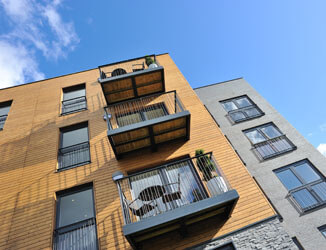Flat leases often contain a number of restrictions on the owner’s part in particular around their ability to deal with their interest (i.e. by selling or sub-letting) and to make alterations. Restrictions around alterations can often be structured so as to create an absolute bar against certain alterations such as those that affect the structure of the property and to impose a conditional restriction in respect of others such as non-structural alterations. In the first scenario the landlord may be able to charge a premium as it can unreasonably withhold consent. In the second scenerio, the landlord cannot charge as consequence of not being able to unreasonably withhold consent to these types of alteration.
Landlords may be keen to generate income from granting consents to alter that are absolutely barred however other terms of the lease may mean that they should not do so.
Landlords need to tread carefully when considering a flat owner’s application for consent to make alterations or bidding for freehold reversions in anticipation of making money following a recent Court of Appeal decision.
In Julia Duval v 11-13 Randolph Crescent Ltd [2018] EWCA Civ 2298, it ruled that the landlord would be in breach of its obligations to the other flat owners if it were to grant consent to a flat owner to make alterations in the face of an absolute bar on the flat owner’s part in their lease.
The case concerned a block of nine flats where the flat owner in question wanted to carry out works to their flat including the removal of a portion of wall. Their lease contained an absolute bar in this regard. Elsewhere in the lease the landlord covenanted to enforce flat owner covenants at the request of other flat owners. In short there was a scheme of covenants designed to give each flat owner the comfort that the same set of rules would apply in respect of each flat and be enforceable by every flat owner against the other via the landlord.
The practical effect of this for flat owners is mixed where the lease contains this form of scheme; if a flat owner wishes to undertake extension works but their lease contains an absolute bar preventing this then all flat leases in the building would need to be amended to remove the bar perhaps making it a conditional restriction instead. This might become extremely frustrating in many situations such as when a flat owner wanting to install recessed lighting in the ceiling of their flat where the covenant is along the lines of that in the present case.
Equally landlords may be disappointed in that they may have bid for a freehold reversion on the basis of income they might generate in this way having analysed the restrictions contained in the flat leases first. That aside they may be surprised to learn they cannot charge a premium for the grant of a consent in the face of an absolute bar with impunity.



